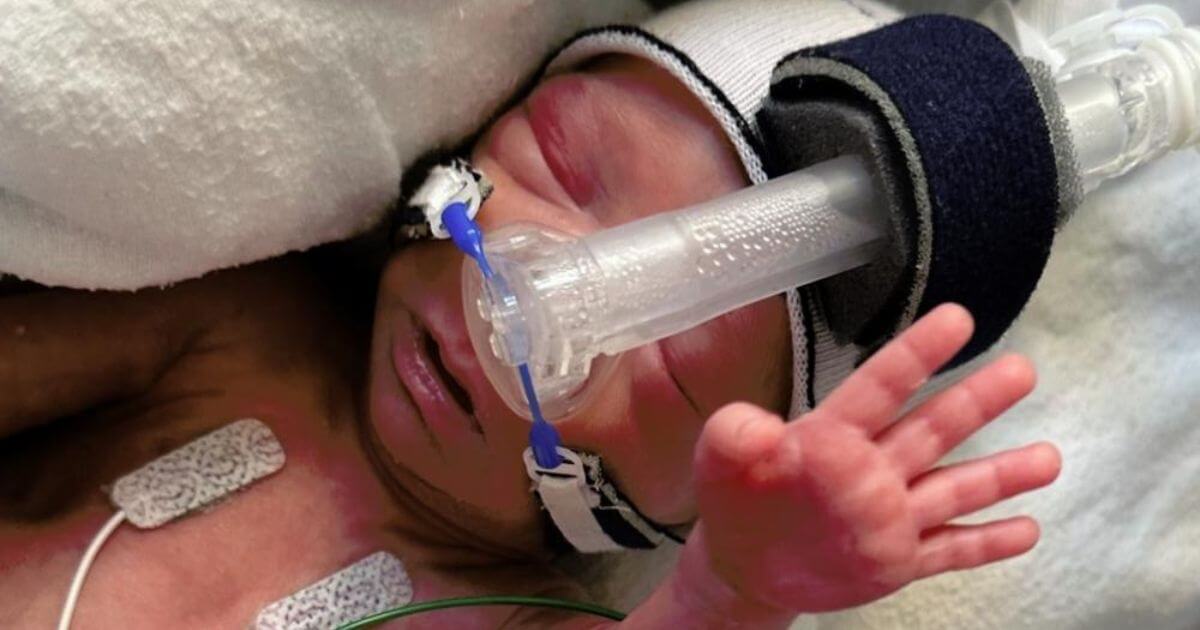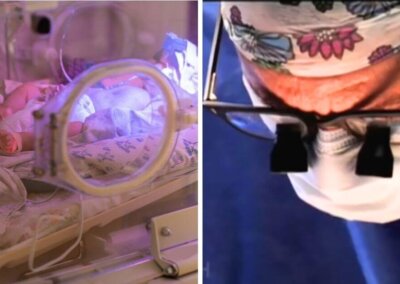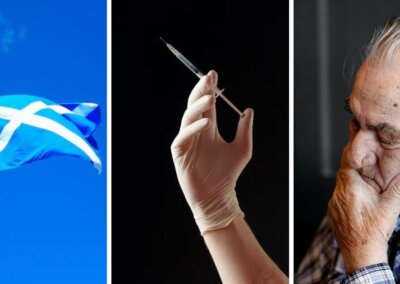Harley was just 27 weeks old and weighed only 860g when he had to be delivered in order to save himself and his mum.
Harley’s mother, Kate, was involved in a car accident in 2013 that left her in a coma for 12 days.
“I had to learn to walk and talk again”, Kate recalls. “I was advised the severity of my injuries meant I needed a kidney and pancreas transplant to save my life”.
“I had always been a type-one diabetic, but I could never imagine that I would spend the next eight years waiting for a magic phone call while being hooked up to a dialysis machine for five hours every second day”.
In January 2019, a match was found for her kidney and pancreas. After she recovered from surgery, she went on to conceive twins.
Sadly, Kate found out she had lost one of their twins at her nine-week scan, but her son, Harley, was still alive.
Baby Harley delivered early
“At 27 weeks my transplants were struggling because I’d developed preeclampsia”, she said. “On April 21 I had an emergency caesarean to not only save my life, but the life of my child”.
He was just 27 weeks old and weighed just 860g.
“I couldn’t believe how tiny he was, and that he was fully formed”, Kate said.
“I was scared to even touch him because I thought I would break him. His whole head fit in between our thumb and index finger”.
“I couldn’t believe how tiny he was, and that he was fully formed”
In order to recover from preeclampsia, Kate had to spend five weeks in hospital, but Harley had a longer fight in front of him.
Baby Harley was then diagnosed with a patent ductus arteriosus, where the blood vessel that connects the pulmonary artery to the aorta remains open after birth.
At 36 weeks he was sent to the Children’s Hospital where the doctors “performed a ligation and closed the hole in his heart”.
“I couldn’t eat or sleep. I couldn’t really do anything other than cry and worry that my little Warrior boy wasn’t going to make it” said Kate.
Harley’s mum says he made it through thanks to his “Viking heritage”. The little boy is now a healthy six month old and weighs more than five kilograms.
Outcomes for premature babies continue to improve
A 2022 study, ‘Mortality, In-Hospital Morbidity, Care Practices, and 2-Year Outcomes for Extremely Preterm Infants in the US, 2013-2018’, by Dr Edward F Bell of the University of Iowa, found that from 2013 to 2018, with infants born between 22 and 28 weeks gestation, “survival to discharge occurred in 78.3% and was significantly improved compared with a historical rate of 76.0% among infants born in 2008-2012”.
These results show that almost four out of five extremely prematurely born babies survived and were able to be assessed at 22-26 months corrected age (22-26 months from their due date). The study assessed 10,877 infants born between 22 and 28 weeks gestation in 19 academic medical centres across the UK.
Right To Life UK spokesperson, Catherine Robinson, said “Seeing these little babies like Harley surviving and flourishing is incredible. Their stories shed light on our inhumane abortion law, which permits abortion under most circumstances up to 24 weeks in the UK”.












